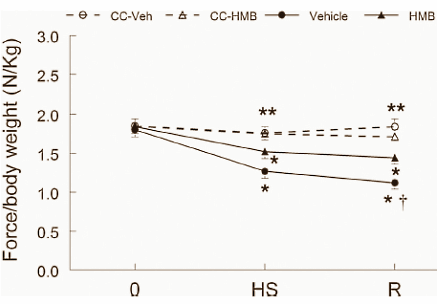|
Definition: "An ergogenic aid is any substance or phenomenon that enhances performance "
|
|
||||||||
06.11.2010 |
|
|
When I stopped training my body went all flabby
"When it got really bad, I started training again", uncle Harry continues. "I lost a bit of weight, but I never got my old shape back, however hard I tried. After a year I gave up again... and now I'm in worse shape than ever."
Sound familiar? Those 'experts' like uncle Harry at birthday parties, trying to impress upon their athletic nieces and nephews how unhealthy exercise is? The nieces and nephews train every day in the gym or go running. And whether it's running, cardio or weight training they do, compared with the other guests at the birthday parties, they look fantastic.
"Just you wait", mutter the uncle Harrys, "Wait till you have to stop. Then we'll see."
So are you better off ignoring uncle Harry? Should you go and talk to aunt Judith instead? No you shouldn't, at least not if a study that Paul Williams carried out at the Lawrence Berkeley National Laboratory is anything to go by. Though according to his research, which was published in 2008 in Medicine & Science in Sports & Exercise, uncle Harry has got a point.
Williams followed over 7000 runners for nearly 8 years. During this period some of the runners increased the distance they ran each week, and others gradually ran less. Because Williams had data on the runners' bodyweight, he could work out how much weight they put on if they started to run less, and how much they lost if they ran more.
If athletes decrease the amount of exercise they do, they get fatter. That's logical. So if they get more exercise, they get thinner. That's logical too. But if athletes start to run 10 km a week less, then they gain more kilos than they lose if they increase their running distance by the same amount. And that's not logical at all.
If you stop exercising you put on weight. If you resume your old pattern of training, then you'll only lose some of the kilos you put on, Williams concludes. "When the priority of regular exercise changes because of obligations to family and work, the temptation to forgo activity must be countered by the knowledge that the benefits gained by being active are not readily reclaimed."
The explanation of the uncle Harry effect is simple, says professor Klaas Westerterp in a recent review article. [Nutr Rev. 2010 Mar;68(3):148-54.] If you start to exercise more, you start eating more too. But if you exercise less, you keep eating the same amount. If you're not aware of this effect, and you don't consciously reduce your energy-intake during a period of no training, you'll automatically put on weight. If you start training again, then your diet is right – but the kilos you've accumulated will stay on.
Go tell uncle Harry...
Source: More: Archives:
|
|
||||||||||||||||






